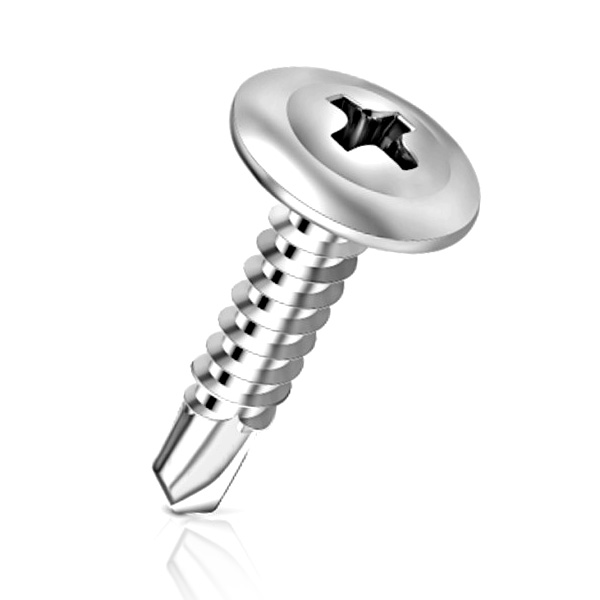1. Thread Types: Mechanical vs. Self-Tapping
Screws come in two primary thread types: mechanical and self-tapping. Mechanical teeth, often abbreviated as “M” in the industry, are used for tapping nuts or internal threads. Typically straight with a flat tail, their primary purpose is metal fastening or securing machine parts. On the other hand, self-tapping screws feature triangular or cross-shaped semi-circular triangular teeth. Known as self-locking screws, their optimized thread design allows for easier penetration without requiring a pre-drilled hole.
2. Head Design and Profile Differences
The most prominent difference between self-tapping screws and ordinary screws lies in their head design and thread profile. Ordinary screws have a flat head, while self-tapping screws feature a pointed head. Additionally, the diameter of self-tapping screws gradually changes from the end to the normal diameter position, whereas ordinary screws maintain a consistent diameter, often with a small chamfer at the end.
Moreover, the tooth profile angle plays a crucial role. Ordinary screws possess a tooth profile angle of 60°, offering excellent grip strength and stability. In contrast, self-tapping screws have a tooth profile angle lower than 60°, enabling them to generate their own threads as they penetrate materials such as wood, plastic, or thin metals.
3. Applicability and Usage Considerations
The distinctions between self-tapping screws and ordinary screws determine their specific applications and usage considerations. Ordinary screws are typically employed in situations where precise alignment and stability are crucial, such as assembling delicate electronic devices or securing machinery components.
Self-tapping screws, on the other hand, are specifically designed to create their own mating threads as they are driven into softer materials, eliminating the need for pre-drilled holes. They find extensive use in woodworking projects, attaching fixtures to drywall, assembling furniture, and installing metal roofing sheets.
It is important to note that self-tapping screws may not be suitable for all applications. When working with harder materials like stainless steel or alloys, pre-drilled holes are often necessary to ensure successful insertion without damaging the screw or the material.
Post time: Sep-18-2023


